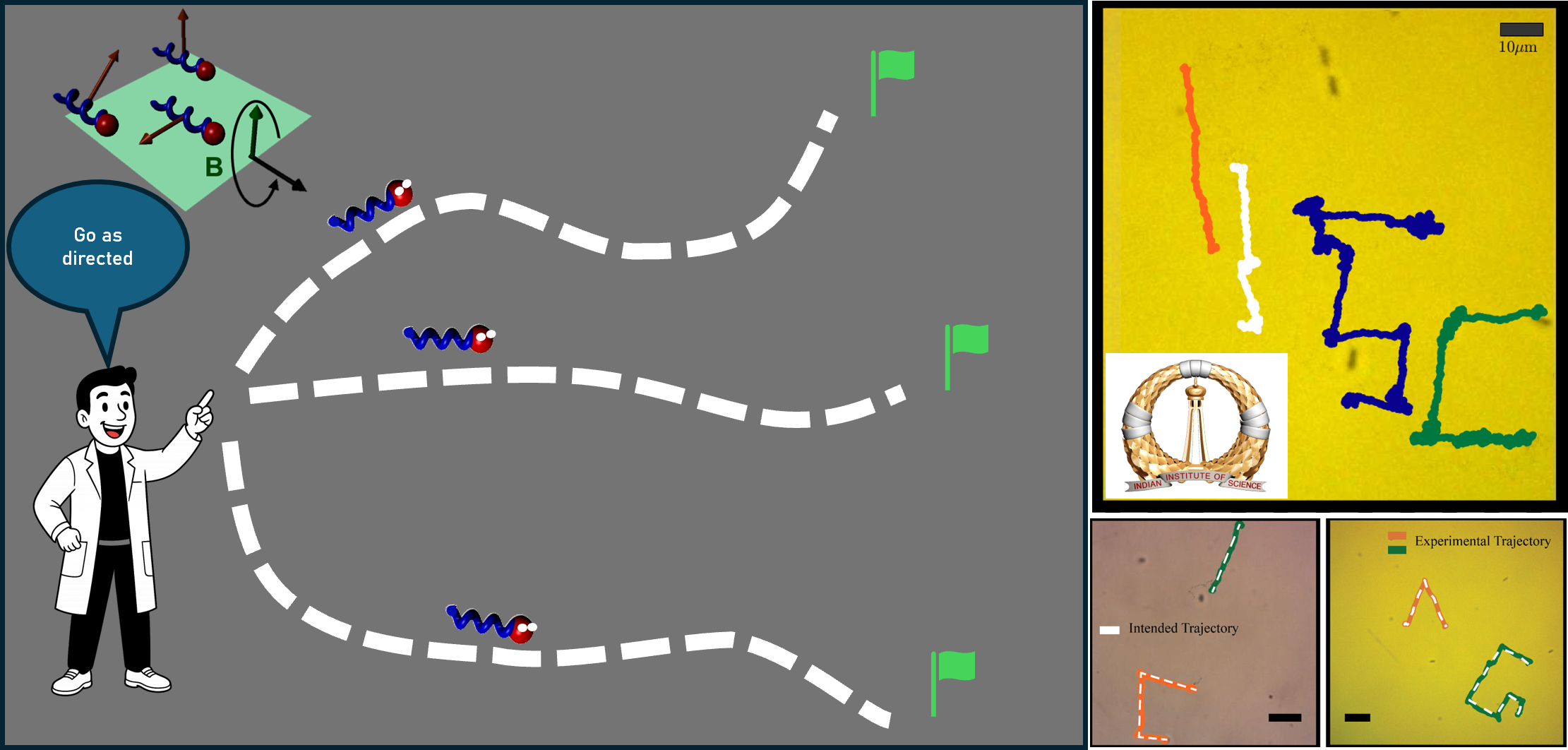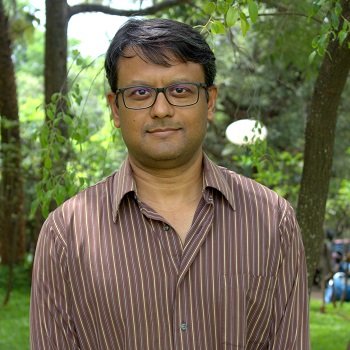Precision in the tiny world: Selectively steering nanobots with global fields
– Divya Chalapathi

Schematic representation of independent control and demonstration (Image courtesy Jyotiprakash Behera)
At the nanoscale, controlling tiny robots or nanobots poses a major challenge. Unlike larger robots, which can be guided individually using radio signals or onboard electronics, nanobots are far too small for such technology. Because of their size, they usually respond to a global field (like a magnetic or electric field) applied to the whole group, making it difficult to move one bot without affecting the others, especially when they are identical.
Researchers at the Centre for Nano Science and Engineering (CeNSE), IISc, led by Ambarish Ghosh, have now developed a novel way to control individual nanobots within a swarm using an ingenious trick: intermittent randomisation. By briefly disrupting each nanobot’s orientation at random intervals, they can make each bot traverse slightly differently, even though they are all exposed to the same global control field. This subtle difference allows for precise navigation of individual bots without needing to alter their design or add internal electronics.
This approach opens up new possibilities in medicine, manufacturing, and computing. Imagine performing surgery deep within the body using nanobots, assembling parts on a chip with high precision, or delivering drugs directly to individual cells. These futuristic ideas are now closer to reality thanks to this strategy for individual nanobot control, paving the way for highly advanced applications in health, electronics, and more.


Dr. Pranay Mandal Prof. Ambarish Gosh
(Contributing Author) (PI)


Mr. Rahul Goyal Mr. Jyotiprakash Behera
(first author) (Joint first author)
REFERENCE:
Goyal R, Behera J, Mandal P, Ghosh A, Externally controlled intermittent randomization enables complex navigation of multiple nanobots, Nature Communications (2025).
https://www.nature.com/articles/s41467-025-58092-y
In Collaboration with:
Department of Physics, Indian Institute of Science
Max Planck Institute for Medical Research, Heidelberg
Max Planck Institute of Molecular Cell Biology and Genetics
LAB WEBSITE:
https://www.cense.iisc.ac.in/ambarish/








